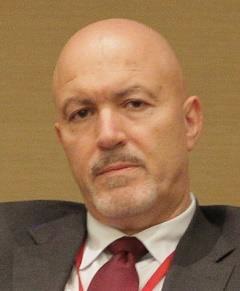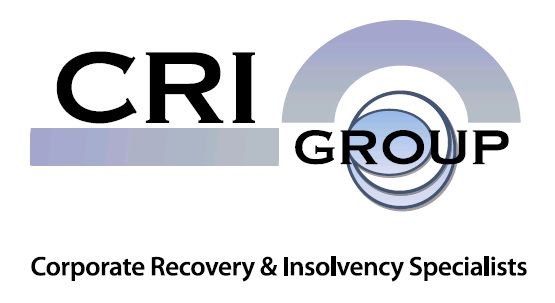Quick search
CTRL+K
Quick search
CTRL+K
posted 1 year ago
Author


There are no results matching your search.
ResetCRI’s team of highly skilled professionals boasts a wealth of experience in both local and cross-border insolvencies, re-organisations and restructurings, asset-tracing and complex investigations involving multi-jurisdiction fraud. We provide advice and guidance on solvent and insolvent liquidations in common law and other jurisdictions. We aim to work closely with all stakeholders, thus enabling us to provide the best possible advice and guidance by utilising all tools available to us.
You will find us accommodating and understanding when listening, and proactive, creative and commercial when advising. We provide advice designed to help companies or group structures to deal successfully with debt and financial restructuring to achieve renewal and recovery. Where rescue cannot be achieved, we will provide guidance and advice as to the way forward, which may often lead to insolvent liquidation.
Our team of experienced professionals includes Cyprus, UK and Romania Licensed Insolvency Practitioners; together we boast extensive experience in international insolvencies and asset-tracing. We have a proven track record of delivering a successful outcome, particularly in relation to groups of companies and complex cross-border insolvencies.
Directors/shareholders of private companies, listed companies or group structures. Financial advisers, solicitors and accountants. Creditors, including banks and other financial institutions. Central Banks.
A Member’s Voluntary Liquidation (MVL) is a shareholder-controlled procedure which can be used where a company is solvent. In order to proceed with this route, at least 75% of the shareholders must vote in favour of a resolution to liquidate the company. The majority of directors must swear a declaration confirming the company is solvent. Distribution can be of liquidated assets, assets in specie or of shares in newly formed companies, which then hold the assets of a liquidated company. We assist our clients to achieve their aim in the most efficient way and with every stage of the procedure, from initiation to finalisation of an MVL.
If a company is insolvent and is unable to discharge its liabilities, it may be that the only appropriate course of action is for the directors to take steps for it to be placed into voluntary liquidation. A Creditor’s Voluntary Liquidation (CVL) is the most common way for directors and shareholders to deal voluntarily with their company’s insolvency. A CVL is appropriate when: the company is insolvent; the company does not appear to be viable even if restructured. Once appointed by members and then creditors, the Liquidator has three main duties: realise the company’s assets; agree the claims of the company’s creditors and pay a dividend; investigate the company’s affairs and the director’s conduct (where there are funds available to do so).
Compulsory Liquidation is when the Court issues an order for the company to be wound up. Following the making of a winding-up order, by virtue of his office, the Official Receiver (OR) becomes liquidator and has a duty to safeguard and protect the assets of the company for the benefit of its creditors. We can assist and advise directors in relation to their statutory obligations once a winding up order is made and/or advise creditors as to the process to replace the OR as Liquidator with another insolvency practitioner.
With the Cypriot courts and the Insolvency Service being renowned for delays, our experience and expertise allows us to “think outside the box” and find alternative solutions.
If there is sufficient evidence to persuade the Court that there has been asset dissipation and/or improper conduct (fraud, transactions at undervalue, preferences, etc) on the part of the directors or the affairs of the company are in limbo and there is an urgent need to act, an application for the appointment of a Provisional Liquidator should also be considered. This can be made contemporaneously with or subsequent to the winding-up petition.
The petition for the appointment of a Provisional Liquidator is usually made on an ex parte basis, and if the Court decides to make such an appointment, it is usually made within a few days of the filing of the petition. If a Provisional Liquidator is appointed, his duty will be to safeguard the assets of the company pending the outcome of the main application to wind up the company.
The Court may appoint a Receiver before proceedings have started, during existing proceedings or on or after judgement. The Court may appoint such person as it thinks fit to act as Receiver in all cases where it appears just and equitable to do so. An appointment may be made, for example, in order to preserve assets where there is a dispute within a company pending a decision on the matters of dispute.
This appointment is intended to maintain the value of the assets so that they may be realised for the benefit of all parties to the dispute. The court may appoint a Receiver where assets subject to a charge have been transferred without the consent of the charge-holder or in regard to a judgement creditor to enforce payment. An application for the appointment of a Receiver may be made without notice (ex-parte), but it must be supported by written evidence. The written evidence must include the reasons why the appointment is required, the value of the property and the income, if any, it is likely to produce, whether the Receiver will act without giving security and details of the person to be appointed Receiver. The Receiver is an officer of the court in all cases; he or she must act fairly and impartially. The appointment of a Receiver operates as an injunction; any interference with the Receiver’s duties amounts to a contempt of court.
We have extensive experience in dealing with complex cross-border insolvency matters and asset-tracing in several common-law jurisdictions, including: the UK, the Bahamas, Russia, Ukraine, Germany, Spain, Italy, BVI, Hong Kong, the Cayman Islands, Romania, India, Barbados, Turks and Caicos Islands, Dominica, St Vincent, Belize, Bermuda, the US, Aruba, Ghana, Romania, Switzerland, Cyprus, the Seychelles, St Kitts and Nevis, the UAE, Austria and Trinidad and Tobago.
We work closely and in conjunction with legal counsel, private investigators and other professional advisers as necessary in the relevant jurisdiction, tailoring our services to the client’s specific requirements.
Mriya Agro Holding Public Ltd (“MAH”) – (in liquidation): MAH involved a large Ukrainian agricultural group of companies with several Cypriot subsidiaries, liquidated by its bond holders, in Cyprus, with debts of 1.3b USD. Initially appointed as Provisional Liquidators, then Special Managers (the first time the Cypriot court made such an appointment) before Joint Liquidators were eventually appointed. A complex investigation was conducted through which fraud spanning several jurisdictions was identified; this resulted in civil action, through which worldwide freezing orders were successfully obtained, and also criminal proceedings were initiated against the perpetrators. Additionally, a financial and corporate restructuring of the MAH group was successfully completed marking the culmination of a very complex and unique transaction through which creditors were able to take control of the group, saving 2000 jobs and facilitating the ongoing trading of the business, which was eventually sold.
“We very much welcome what Mriya has been able to do. I think that this is really a huge breakthrough. I can say that this is the first story of this kind on our territory. So the National Bank very much welcomes Mriya’s debt restructuring.” –Valeria Gontareva, Governor of the Central Bank of Ukraine
FBME Bank (Cyprus) Ltd (in Special Administration) Appointed by the Central Bank of Cyprus (CBC) as Special Administrator, pursuant to the provisions of section 46(5) of the Resolution of Credit Institutions and Investment Firms Law of 2016 (22(I)/2016): We assisted the CBC and the Republic of Cyprus with the arbitration claim brought by FBME’s owners, in Paris, which resulted in a successful outcome for the Government (https://cyprus-mail.com/2019/01/29/pariscourt-rules-in-favour-of-cyprus-in-fbmecase/) and worked closely with the Depositors Guarantee Scheme in dealing with depositors’ claims. Acting as custodians of customer deposits, across several European and other jurisdictions, coordinating efforts with various stakeholders in an effort to repatriate funds from correspondent banks and dealing with the reduction of operating and other expenses.
Other cases: These include, liquidations of complex structures, carrying out investigations involving fraud which often lead to local, European and international arrest warrants against those responsible, applying for recognition of foreign Liquidators, assisting and providing guidance vis-à-vis the registration of foreign judgements obtained outside Cyprus.
More Locations
Main Guide
posted 2 years ago
The legislation concerning Insolvency varies all over the world, but often encompasses matters of bankruptcy, distressed debt, restructuring and turnaround…
There are no results matching your search.
Resetposted 2 years ago
Commercial or mercantile law relates to the interactions, rights and conduct of individuals or businesses engaged in trade and commerce…
posted 2 years ago
Real Estate Law encompasses landowners’ transactions and shares common ground with Property Law – and the myriad ways in which land and property are utilised for personal and business endeavours…
posted 2 years ago
Business crime is a broad term that includes a wide scope of nonviolent criminal offences relating to fraud and illegal financial transactions, often achieved by sophisticated means…
posted 2 years ago
Employment Law governs interactions between employers, employees, unions and government regulations – which often require amendments due to societal changes…
posted 2 years ago
The collective framework known as Corporate Law governs the rights, conduct and relations of individuals, companies and organisations doing business…
posted 2 years ago
Litigation is the final legal process for settling disputes, but its practice is intertwined with alternative forms of dispute resolution…
There are no results matching your search.
ResetFind the right Legal Expert for your business
Sign up for the latest legal briefings and news within Global Law Experts’ community, as well as a whole host of features, editorial and conference updates direct to your email inbox.
Naturally you can unsubscribe at any time.
Global Law Experts is dedicated to providing exceptional legal services to clients around the world. With a vast network of highly skilled and experienced lawyers, we are committed to delivering innovative and tailored solutions to meet the diverse needs of our clients in various jurisdictions.